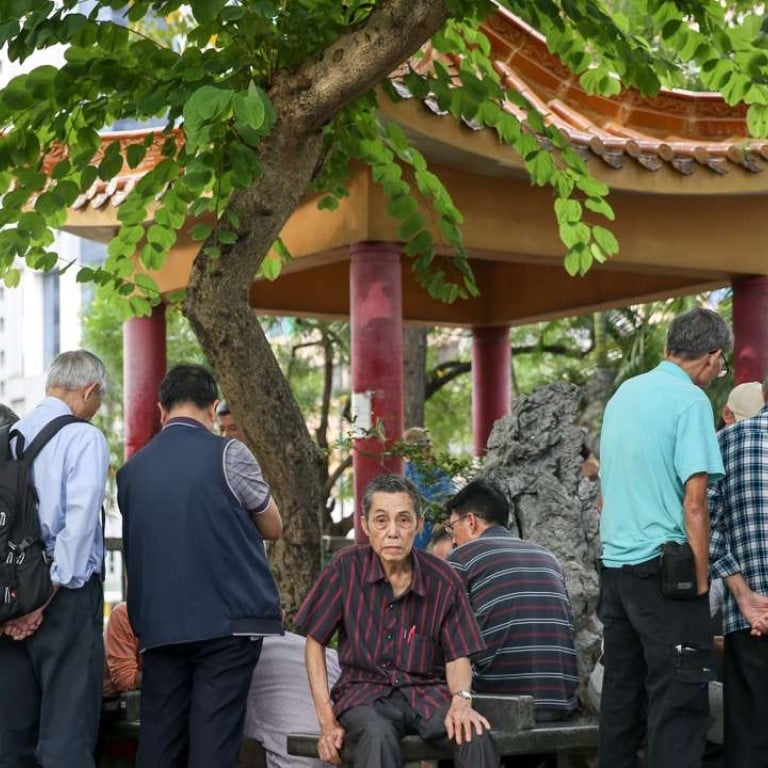
Retrofitting Hong Kong is all about reinforcing strengths and tackling future challenges
City needs to revamp its existing policies to factor the requirements of the rapidly growing ageing population
The Hong Kong General Chamber of Commerce will be holding its annual Business Summit later this week and I have been asked to share my thoughts on how Hong Kong can enhance its relevance and extend its role as a leading business and financial hub in Asia and catch up as a smart city through innovation, technology, sustainability and liveability measures.
This coincides with last week’s publication for public engagement of the government’s Hong Kong 2030+ study which is designed to update the territorial development strategy to guide planning, land and infrastructure development and to shape the built and natural environment of the city beyond 2030. This is obviously a very useful contribution to any discussion about the future development of Hong Kong, particularly as the study adopts a visionary, proactive, pragmatic and action orientated approach to respond to the changing circumstances and challenges ahead.
The study recognises the changing demographics, particularly the ageing population, the fact that innovation and technology must be acknowledged as key drivers and the need for action in relation to climate change. It also acknowledges the aspiration for enhanced liveability in the context of a high density city, for adopting a much longer term view to meet land requirements, and the need to embrace new economic challenges and opportunities and to create capacity for sustainable growth.

Clearly, the update and issue of the 2030+ proposals are welcome and provide a useful context for a discussion as to how Hong Kong should retrofit itself and repackage and reposition to address challenges yet, at the same time, embrace opportunities. The reality is that we need to stop dreaming and wake up to the fact that there is much to be done if Hong Kong is to remain relevant in the future. It is fine to be aspirational but as we all know it is all about delivery and this is where we constantly trip up.
The 2030+ study potentially provides some of the key components for success but the delivery of such an ambitious programme as that envisaged requires a joined up approach across government bureaux and departments and the support of the Legislative Council and the community at large. We know that governments can work well within bureau and department comfort zones (or silos as sometimes described) but there will need to be a fundamental change in overall mindset and the adoption of a holistic delivery approach if we are to succeed as proposed. It is interesting and troubling that the study states that “implementation of individual projects will continue to be evaluated in accordance with established mechanisms, taking into account cost effectiveness and resource priority”. This smacks somewhat of maintenance of the status quo and not the visionary outlook which the study seeks to portray.
If the changes envisaged are to be achieved there will also need to be the need to revisit the building and planning regulations, in particular the former, and to introduce a performance related approach to the assessment of schemes which seek to improve and enhance existing buildings. We also must seriously consider our current “ageing in place” model if we are to address the needs of our ageing population on the scale that is required. A focus on in-place upgrade and improvement is necessary rather than provision of single category separate enclaves; so as to enable our seniors to remain in and as part of their existing communities.
There is also a need to accept and understand that “smart” is only part of the liveability equation and that quality of life embraces far more than the latest technology developments. We need a livable city agenda covering energy efficiency, waste management, air and water quality, recreational facilities, open space, sustainability, a public transport/walkability regime and, of course, green buildings, smart living and healthy ageing. There are interesting initiatives in relation to smart city practises in Kowloon East and at the Hong Kong Science Park but these are still very tentative and the ultimate objective must be for Hong Kong at the city level to become a showcase for a sustainable and attractive lifestyle.
But to achieve all this there must be the will to make it happen and without that Hong Kong cannot hope to progress. That will depends as much, if not more, on the community – be it district councils, grass roots organisations, NGOs, young people, business leaders etc, than it does on government itself. It will require a shared view of the future, with a willingness to set aside some of the selfishness and self interest which currently mars many community discussions.
In embarking on any discussion about the future, I think it is important to achieve the appropriate balance. There is much that distinguishes Hong Kong and has underpinned our success to date. It is a question of reinforcing those strengths as well as addressing the challenges of the future. Historically, Hong Kong has demonstrated its ability to successfully adjust to changing economic and social circumstances and in my view there is no reason why it cannot do so again and reposition the city to take full advantage of future opportunities. This will require patience, perseverance and above all belief and the willingness to take brave decisions.
Nicholas Brooke is chairman of Professional Property Services

